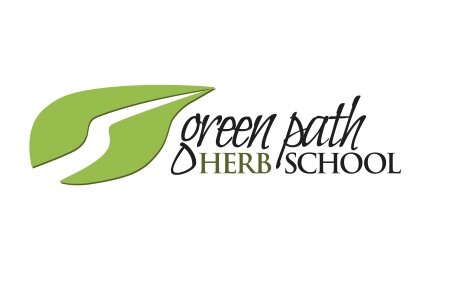
Green Pharmacy: Making your own Herbal Medicines
Green Pharmacy: Making your own Herbal Medicines
AN ONLINE, IMMERSIVE PROGRAM DESIGNED TO START YOUR OWN HERBAL APOTHECARY
Join herbalists Elaine Sheff and John Goicovich of Green Path Herb School for our online program to create your own home herbal apothecary. Learn how to make herbal medicines including teas, decoctions, cold infusions, tinctures, salves, oils, glycerites, vinegars, honeys, elixirs, oxymels and more! Although this is an online program, we will be making products together in most classes.
Who should take this program?
This course is designed for herb enthusiasts interested in empowering themselves to make their own herbal medicines at home. Herbal medicines are most effective when we use the highest quality ingredients - the more potent a product, the better it will work. When you make your own herbal medicines, YOU are in control of the quality and freshness of your products. You can turst that you know every ingredient and make specific formulas that fit you and your loved ones. Students will come away from this program with a comprehensive tool kit having made their own powerful and effective herbal medicines. This class has a PDF workbook including detailed instructions, definitions, and many recipes, with video downloads for lifetime access to the classes.
The Program:
The Basics:
Herbal pharmacy terms
Medicine making equipment and tools of the trade
Harvesting and drying herbs properly
Different types of herbal medicines and when they should be used
Soluability of different herbs
Choosing the best types of medicine to make from different plants
Teas (Water Extracts):
Discuss the pros and cons of herbal teas
Learn how to make tisanes, decoctions and cold infusions
Discover which plants are appropriate to make teas.
Macerations (Making an Herbal Tincture):
Pros and cons of using tinctures
Solvents used in herbal tincture making
When and how to use tinctures
How to make a fresh plant maceration
How to make a dry plant maceration
Weights, measures, ratios and alcohol percentages
Dosage ranges for different tinctures
Percolations (Making an Herbal Tincture Fast!):
The pros and cons of percolations
Learn when to make a percolation vs. a maceration
Which herbs make great percolations
Equipment details
Oils:
Which herbs make the best herbal oils
Learn which properties are soluable in vegetable oils
How to make fresh plant oils
How to make dry plant oils
Salves:
How to make slaves, lip balms, and ointments
When to use a salve and when it might cause problems
Poultices:
The best herbs and ingredients to use for poultices
How to make a poultice
Compresses and Liniments:
Examples of the best herbs to make excellent compresses and liniments
When to use compresses and liniments
Glycerites (Alcohol-Free Tinctures):
The pros and cons of glycerite tinctures
Herbs to use when making glycerites
The healing properties of vegetable glycerine
Six different methods to make an herbal glycerite
How to use glycerites
Elixirs:
Elixirs defined
Which herbs to use
How to make elixirs
Elixir dosages
Herbal Vinegars:
Which vinegars to use and which to avoid
The health benefits of vinegars
Using vinegars internally and topically
Herbs that make the best vinegars
Herbal Honeys:
The magic of bees and honey
The health benefits of honey
How to make a potent herbal honey
Oxymels and Switchels:
The definition of oxymels and switchels
Flavor categories for herbs
Four ways to make herbal oxymels
How to use oxymels and switchels
Dosage guidelines
Fire Cider:
The history of fire cider
How to make different fire ciders
Additional Resources: All students will receive lifetime access to class videos and a PDF workbook including bountiful recipes, and detailed information for each class.
Program Details:
Dates for 2024: Thursdays, 5-8 pm Mountain Standard Time September 12, 19, 26, October 3, 10, 17, and 24.
All classes are online via Zoom. Classes will be recorded and can be downloaded to be viewed later for those who cannot attend live.
Price: $350*. Registered students will be contacted with class details and links.
Cancellation Policy:
A $100 deposit (out of total tuition) is non-refundable upon paying for the program.
All credit card fees are non-refundable.
A full refund of tuition (less the $100.00 deposit and all credit card fees) will be paid if the student withdraws (in writing) before the first day of class.
If a student cancels after the classes have begun, a calculation of all allowable charges shall be made using the date that we received written notification of termination.
If a student withdraws from any program, a refund calculation will be applied based on the following:
Less than 10% of course completed = 75% refund
More than 10 % and less than 25% of course completed = 50% refund
More than 25% and less than 50% of course completed = 25% refund
Over 50% of course completed = 0% refund
After 50% of the course is over, the total sum of tuition is owed in full, even if not all classes are attended.
All students making payments are still subject to the Refund Policy terms.
What students are saying:
“Learning from Elaine and John was a journey into the nature of myself as well as the natural world. Their teaching styles balance each other which allows for a deeper, more meaningful learning process as a student. Their love and compassion come through in their approach to teaching that appreciates a variety of learning styles in their students. They provided safe, effective material and offered an easily accessible approach to wellness. ”
“The things I learned while taking classes with the Green Path Herb School empower and inspire. I now feel equipped with information and awareness that will allow me to take medicine and healing into my own hands by working with the Earth’s provisions.”
“Thank you so much for sharing your amazing knowledge and time with so many people. You have been such an inspiration to me, and I don’t think I would have had the resources or info I needed to begin this journey without your help!”








